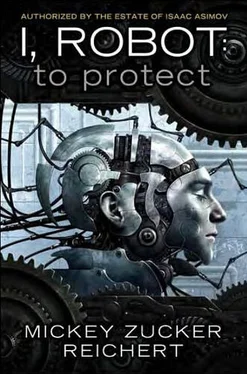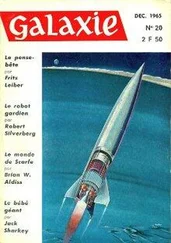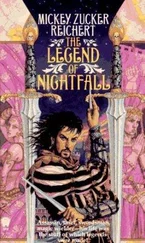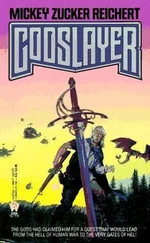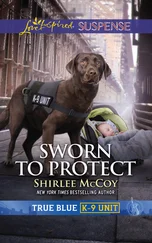Nate straightened his dress khakis, then ran a hand through his short hair. He had gestures and mannerisms that made him seem all the more alive. “Are we finished, Susan?”
Susan met Nate’s gaze again, the remainder of her lunch forgotten. “Do you have a few more minutes?”
“A few.” Nate remained in his chair. “Do you have more hypotheticals?”
Susan sighed and straightened her own clothing. “Actually, this is a real situation. I have a patient who had brain surgery performed by a man they call ‘one of the greatest neurosurgeons in the world.’”
“Dr. Sudhish Mandar,” Nate filled in.
Startled again, Susan managed only a “yes.” Then, “Do you know him?”
“If you asked him, he’d say the greatest, not just one of a group at the top.” Nate planted both arms on the armrests of his chair, gripping the ends in his hands. “You should know that, although I have read all those books” — he gestured vaguely toward the shelves — “I am not considered a medical expert.”
Susan’s attention followed Nate’s motion. If he had read every book on those shelves, and retained even a quarter of it, he had as much knowledge as most physicians. “It’s not a medical question. It’s . . . moral.”
“Moral? And you’re asking me? Morality is a human construct.”
Susan disagreed. The Three Laws inflicted an honor on the robot that humans might not appreciate, even if they recognized it. “Nevertheless, I’d like your opinion.”
“Okay.” Nate settled back into his chair.
“The neurosurgeon has declared the surgery a success and no longer looks after the patient. For months, she was believed to have dementia” — Susan looked up to see if she needed to define the word; Nate waved her on — “due to presurgical swelling of the brain because of the initial problem or damage to the brain tissue during the surgery.”
Nate continued to nod his understanding.
Susan downplayed her role in the upcoming information. “Yesterday, we discovered this young girl’s dementia is actually due to heart failure. The cardiologists put her on medicine to help control it, and her mental status is clearing.”
Nate smiled. “That’s good news. Right?”
“Well, yes.” Susan gave a less than enthusiastic response. “Except they had to put her on very high doses of serious medications, and it’s only helping to keep the problem in check. It’s not a cure. My concern is the condition will soon overcome the medications; and, not only will the dementia return, but the heart failure will worsen.”
“And she’ll die?” Nate guessed.
“Eventually.” Susan knew a young, strong body had ways of compensating for congestive heart failure. Starling Woodruff’s already had, or it would have been discovered sooner. “She can probably go home, but she can’t live anything approaching a normal life until we fix the underlying problem causing the heart failure.”
“Which is?” Nate prodded.
Susan shook her head. “We don’t actually know. Heart failure occurs when the heart can no longer meet the metabolic demands of the body at normal venous pressure. A lot of things can cause it.” A huge list ran through Susan’s head. “Most of those have to do with the heart itself or the large vessels that pump blood to and from it. But the cardiologists have examined her heart and vessels with every scanner known to modern medicine. The heart’s electrical systems and tissues, its valves and chambers are normal. The large vessels have no abnormalities. There’s no big, honking tumor sitting in or near it.”
“And the other causes?”
Susan’s head did not stop moving. “Simple blood tests. She isn’t anemic. Her endocrine system and kidneys function normally. Her blood pressure is fine.”
“So the reason for her heart failure is?”
Susan still shook her head.
“You know, Dr. Susan Calvin. Don’t you?”
Susan’s head finally stopped moving. She bit her lower lip. “I believe I do.”
“And?”
Everyone else, including the cardiologists and her own attending, had dismissed her idea; but nothing else made sense. She wondered what Nate would think, especially in light of his reading those books. “The initial abnormality in her brain is called an arteriovenous fistula. In Starling’s case, it was congenital, meaning she had it at birth.”
Nate nodded his understanding.
“Normally, blood with oxygen in it flows from arteries to capillaries. The capillaries give the oxygen to all the tissues of our bodies, and the now-deoxygenated blood flows into the veins and goes back to the heart, then to the lungs, for more oxygen. With an A-V fistula, the blood flows right from an artery into a vein, bypassing the capillaries.”
Nate was clearly still following.
“Vein walls aren’t meant for the high-pressure flow of arteries, so the vein wall stretches. Blood pools in the stretched area, making it bigger. If it’s big enough, blood pressure falls. The heart has to pump harder to make up for it, and congestive heart failure can develop.”
“So,” Nate said carefully, “your concern is that the original A-V fistula wasn’t fixed properly.”
Susan cringed. Nate had summarized it perfectly. “And I, Psychiatry R-1 that I am, don’t see how I’m going to convince the greatest neurosurgeon in the world he made an enormous mistake.”
“Surgeons don’t have high opinions of the nonsurgical specialties.” It seemed more statement than question.
Susan could not forget her conversation with Kendall about that exact subject. “In general, that’s true. The more specialized the surgeon, the less he respects the medical specialties. Unfortunately, many of them consider psychiatry the lowest form of medicine. And, of course, R-1s are the lowest form of doctor.”
“Yet you are a doctor.”
“Yes.”
“And obviously a fine diagnostician.”
Susan flushed. She had no idea how Nate would know such a thing. “I’m all right, but mostly unproven.” She returned to her original question. “So here’s my thing. If you were in my shoes, what would you do?”
Nate sucked air through his nose and let it slowly out his mouth. “In your position, I would have no choice but to act in Starling’s best interests.”
“Of course.” It was the job of physicians always to act in the best interest of any patient, regardless of age, situation, symptoms, or desires. “And it’s clearly in Starling’s best interests to find and treat the cause of her heart failure. The question is . . . how?”
Nate drummed his fingers on the end of the chair arm. “It seems to me you’re in a better position to answer that. Are you sure the cause is a botched surgery?”
Susan doubted anything in medicine was a certainty. “Reasonably sure. If it’s something else, it’s an amazing coincidence; but amazing coincidences do occur.”
“Can you prove it?”
Susan bit her lower lip in frustration. “I could, but not without doing tests I have no authority to order, ones that require a neurosurgeon’s approval. It would also take a skilled neurosurgeon to reopen the skull and take another look.”
“So . . . you need a neurosurgeon.”
“Yes.” Susan realized bringing in another neurosurgeon would cause more problems than facing the old one. She doubted any other neurosurgeon at Manhattan Hasbro would dare to second-guess Dr. Mandar’s proficiency and decisions, and they would want to know his opinion first. “Someone has to talk to Dr. Mandar about taking another look inside Starling.”
“Yes.”
“Who?”
“Who indeed?” Though Nate spoke without emotion or accusation, Susan knew the answer. The cardiologists would only throw it back into her lap, and her attending refused to believe the great Sudhish Mandar could have made a mistake.
Читать дальше
